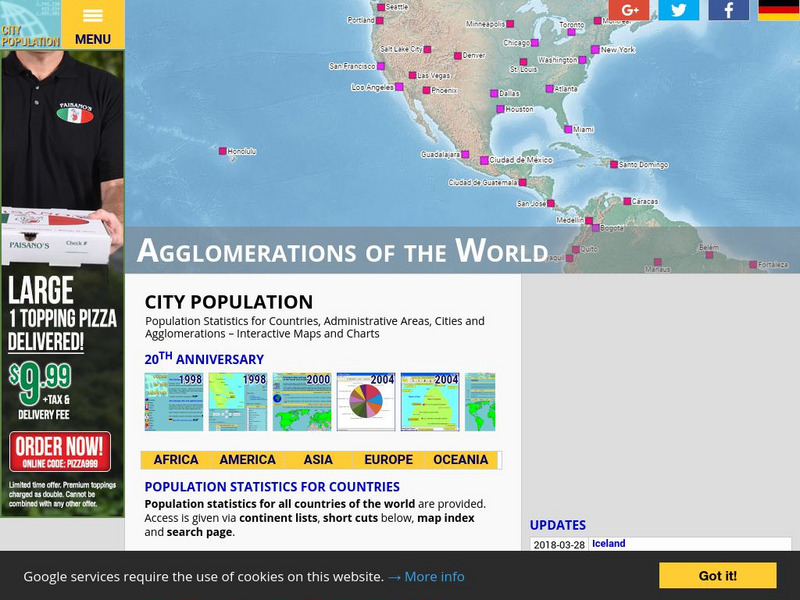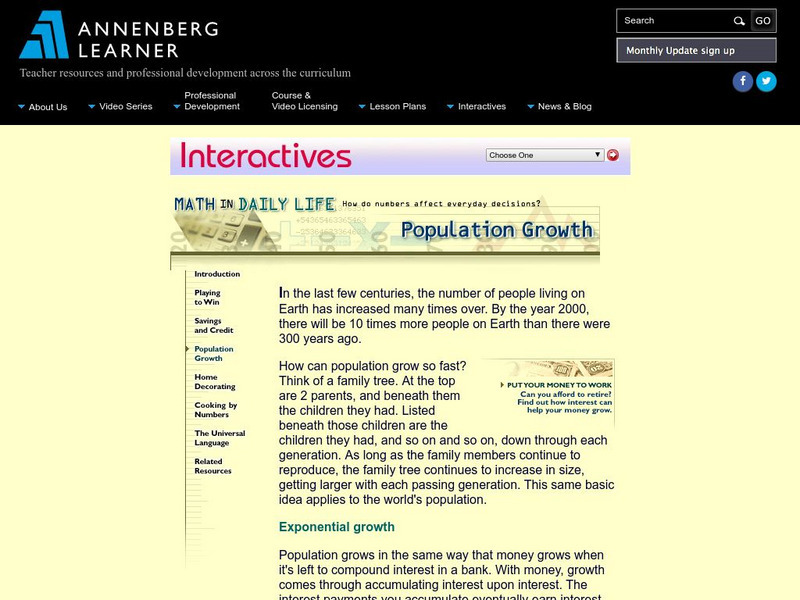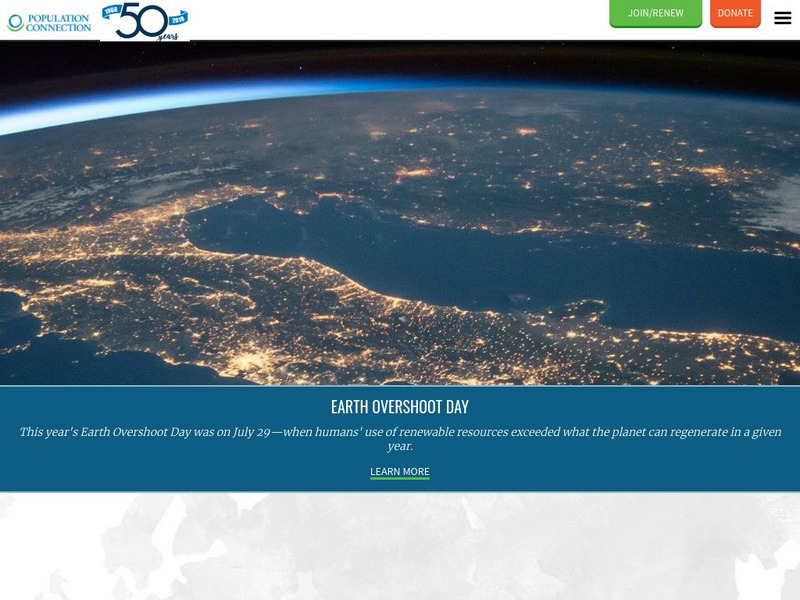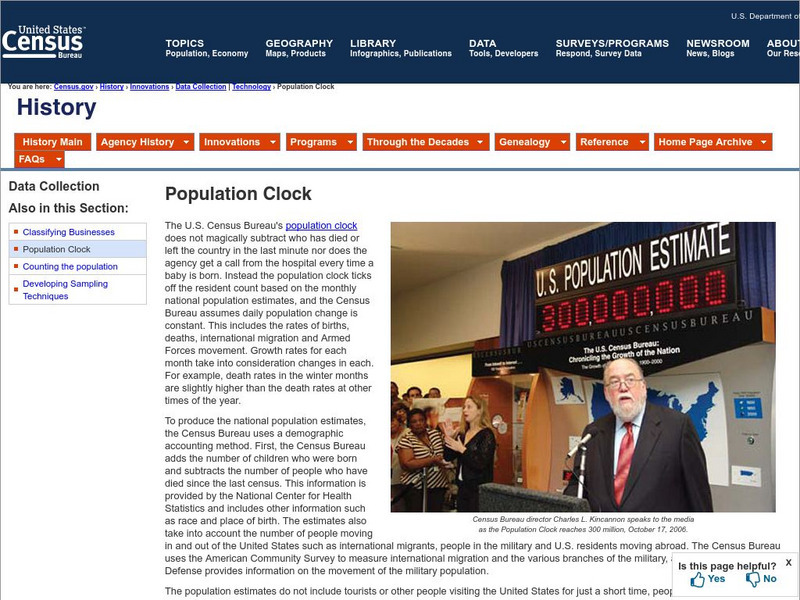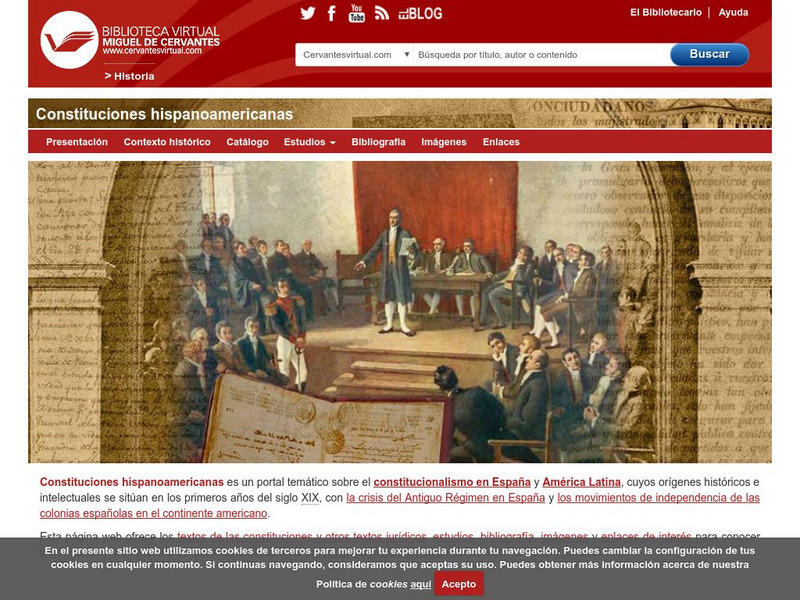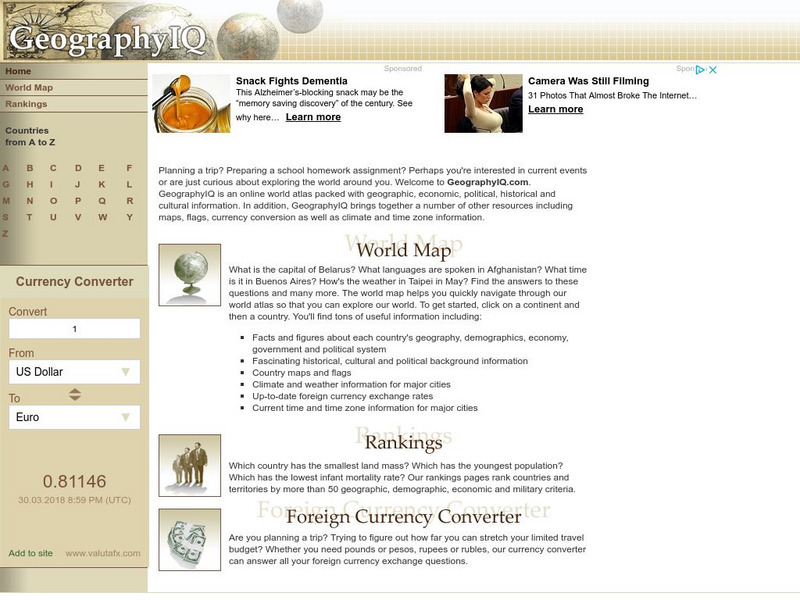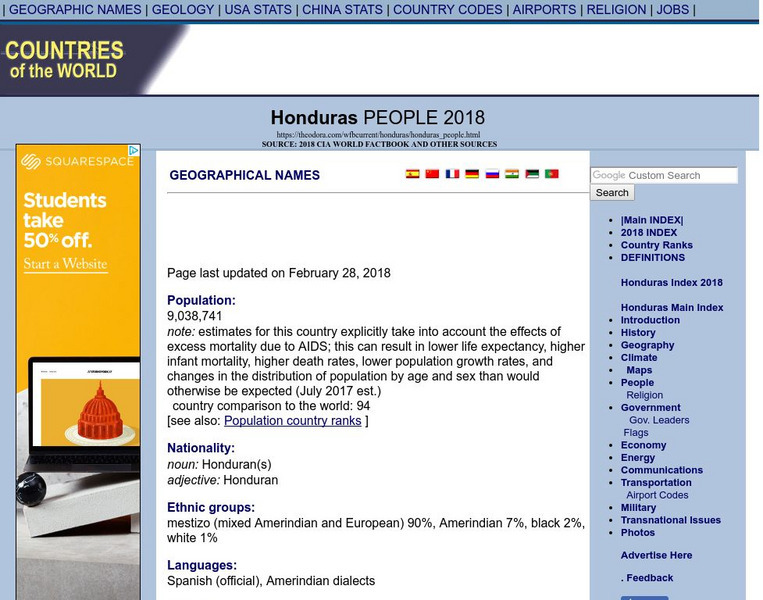ProCon
Minimum Wage
The first ever minimum wage in America was set at 25 cents per hour in 1938 and has been steadily, if slowly, increasing ever since. Using the provided website, pupils decide if the United States should further increase the federal...
National Humanities Center
National Humanities Center: Teacher Serve: Choosing Future Population
Essay on population growth past, present and future and the impact on society. Includes guiding questions for students and links to related resources.
Science Buddies
Science Buddies: Project Ideas: Crystal Ball Math: Predicting Population Growth
In this environmental science fair project, students will learn some of the ways in which the population growth of animals is modeled, and then use the logistic model to determine how a population grows when it starts far below, at, or...
Other
Population for Countries and Cities Around the World
Site calculates and approximates populations for numerous major cities around the world, and also has information about world countries as well.
Annenberg Foundation
Annenberg Learner: Math in Daily Life: Population Growth
At this website there is basic information about world population growth over the last 300+ years. The link at the end of the article is to another article that compares the population growth of two states.
Population Connection
Population Connection
This is the official home of Population Connection (formerly Zero Population Growth), a non-profit organization focused on slowing population growth. This site offers current information on government legislation and policy in this...
US Census Bureau
U.s. Census Bureau: Population Clocks
This U.S. Census Bureau Web site has two population clocks with notes available. One clock shows the population increase for the United States. The other shows the world population increase.
Biblioteca Virtual Miguel de Cervantes
Datos Estadisticos De Hispanoamerica
This resource has a comparison of statistical data on all Spanish-speaking countries. Countries are compared and ranked according to land mass, population, population density, annual population growth, life expectancy, infant mortality...
Biblioteca Virtual Miguel de Cervantes
Biblioteca Virtual Miguel De Cervantes: Colombia
This resource is on the country of Colombia. The flag and a general map of the country are included. Of particular interest is the statistical data available on land size, climate, population, life expectancy, infant mortality rate, and...
Biblioteca Virtual Miguel de Cervantes
Biblioteca Virtual Miguel De Cervantes: Espana
This resource site in Spanish for the country of Spain. The flag and a general map of the country are included. Of particular interest is the statistical data available on land size, climate, population, life expectancy, infant mortality...
Other
Mother Jones: What It Will Take
This blog article discusses population growth in the context of wealth, poverty, women's rights and birth control.
The World Bank
World Bank Group: Gnp Per Capita
The World Bank Group offers an educational overview of GNP per capita. Content includes a map, charts, data, photos, cases, research, and exercises!
Geographyiq
Geography Iq
Detailed geographical information on any country is available at this site. Within the World Map section, you can get facts and figures about each country's geography, demographics, government, political system, flags, historical and...
Information Technology Associates
Nicaragua : People
Excellent site about the people of Nicaragua, population, age structure, growth rate, death and birth rate, life expectancy, ethnic divisions, literacy, and more.



